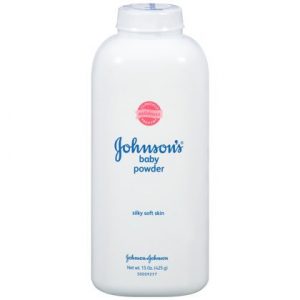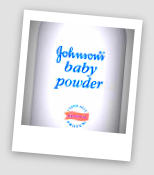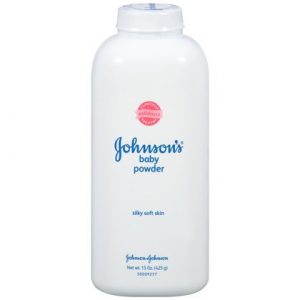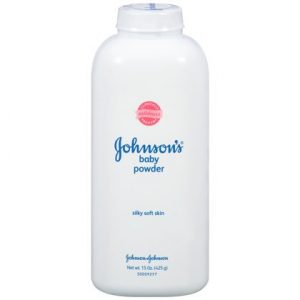A St. Louis jury yesterday announced a $70 million talcum powder ovarian cancer verdict, in the third talcum powder ovarian cancer case to go to trial.

Medical research and jurors have found talcum powder ovarian cancer link.
Deborah Giannecchini, 62, used Johnson & Johnson’s (J&J) baby powder for feminine hygiene for more than four decades until her diagnosis with ovarian cancer three years ago.
Giannecchini has an 80 percent chance of dying in the next two years, and has undergone surgery, radiation and chemotherapy.
J&J and Imerys Hammered
A J&J unit was ordered to pay $65 million in punitive damages and 90 percent of about $2.5 million for medical costs and pain and suffering.
Co-defendant Imerys Talc America, the supplier of the talc, was hit with $2.5 million in punitive damages.
Juror: “J&J Didn’t Care”
As reported in Bloomberg News, the company should have provided a warning label on the product to let consumers decide whether to use talc, one juror Billie Ray, 76, of St. Louis, said after the trial. “It seemed like Johnson & Johnson didn’t pay attention,” she said. “It seemed like they didn’t care.”
Continue reading

 Dallas Fort Worth Injury Lawyer Blog
Dallas Fort Worth Injury Lawyer Blog



 Recent lawsuits against Johnson and Johnson’s Baby Powder product has brought to light evidence linking Talc, the main ingredient in Baby Powder, and ovarian cancer.
Recent lawsuits against Johnson and Johnson’s Baby Powder product has brought to light evidence linking Talc, the main ingredient in Baby Powder, and ovarian cancer. The link between ovarian cancer and talcum powder was originally discovered in 1971 in a study that revealed talc particles in the ovarian tissue of cancer patients.
The link between ovarian cancer and talcum powder was originally discovered in 1971 in a study that revealed talc particles in the ovarian tissue of cancer patients.